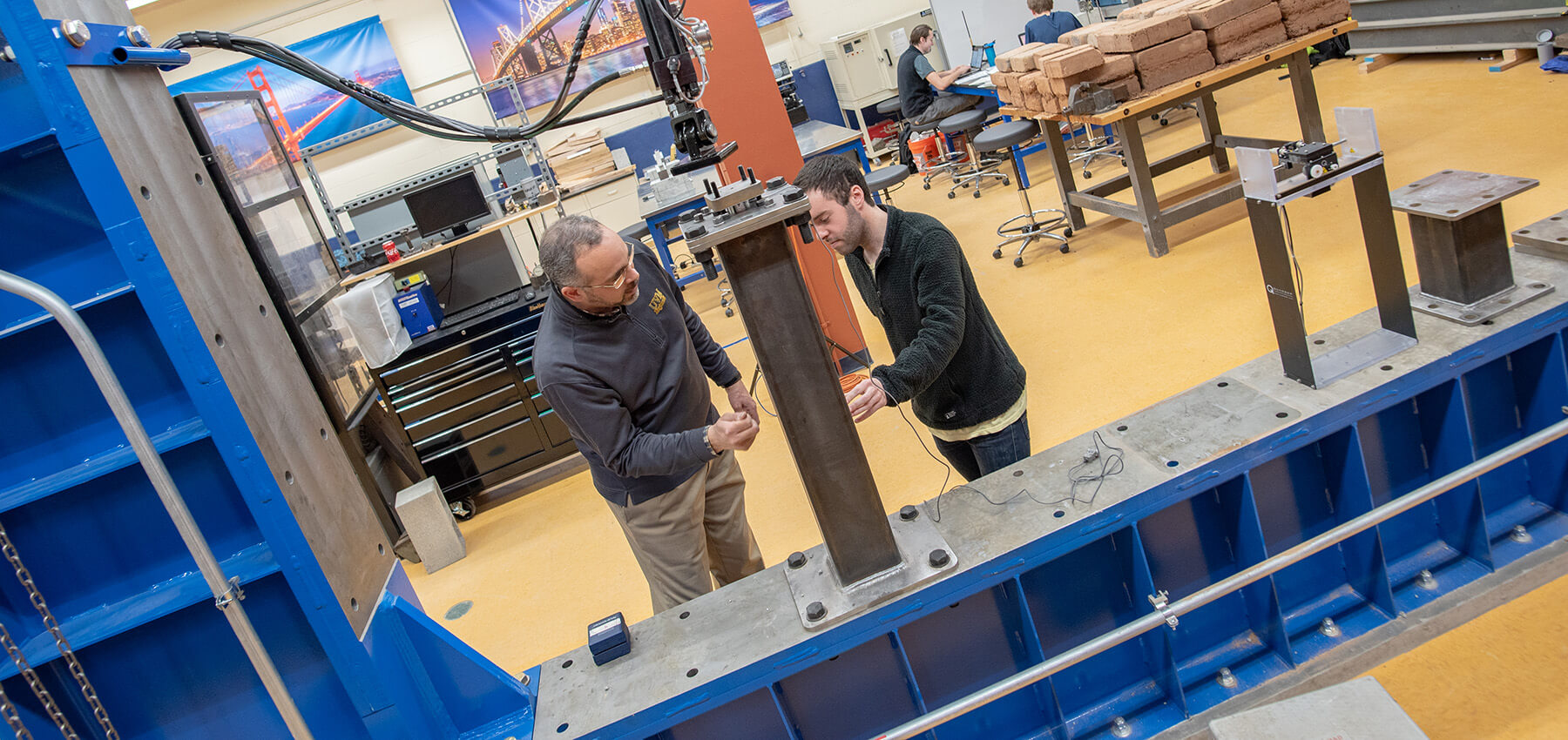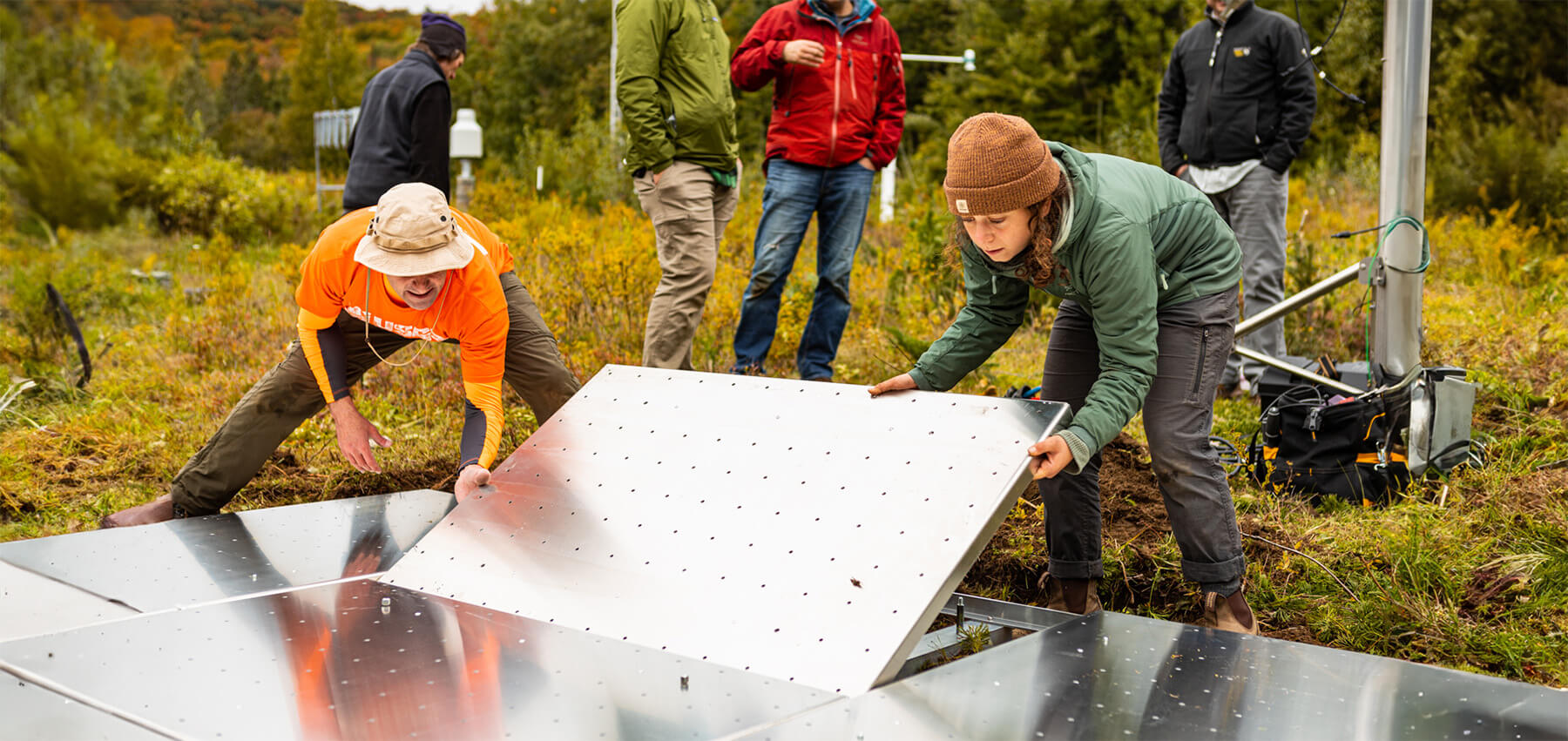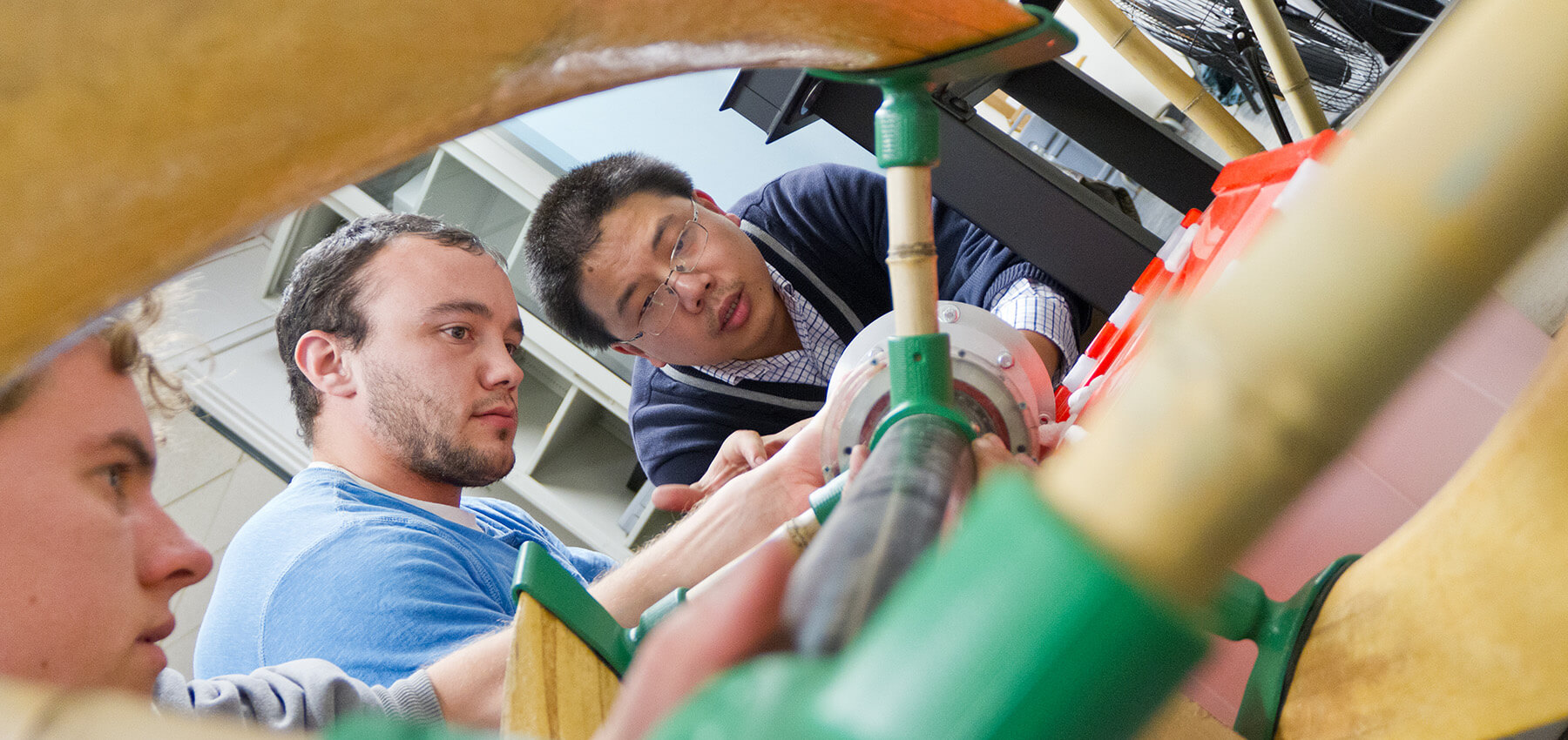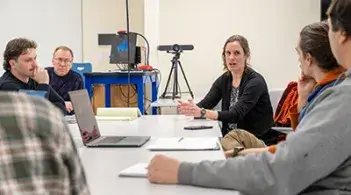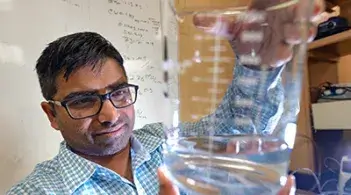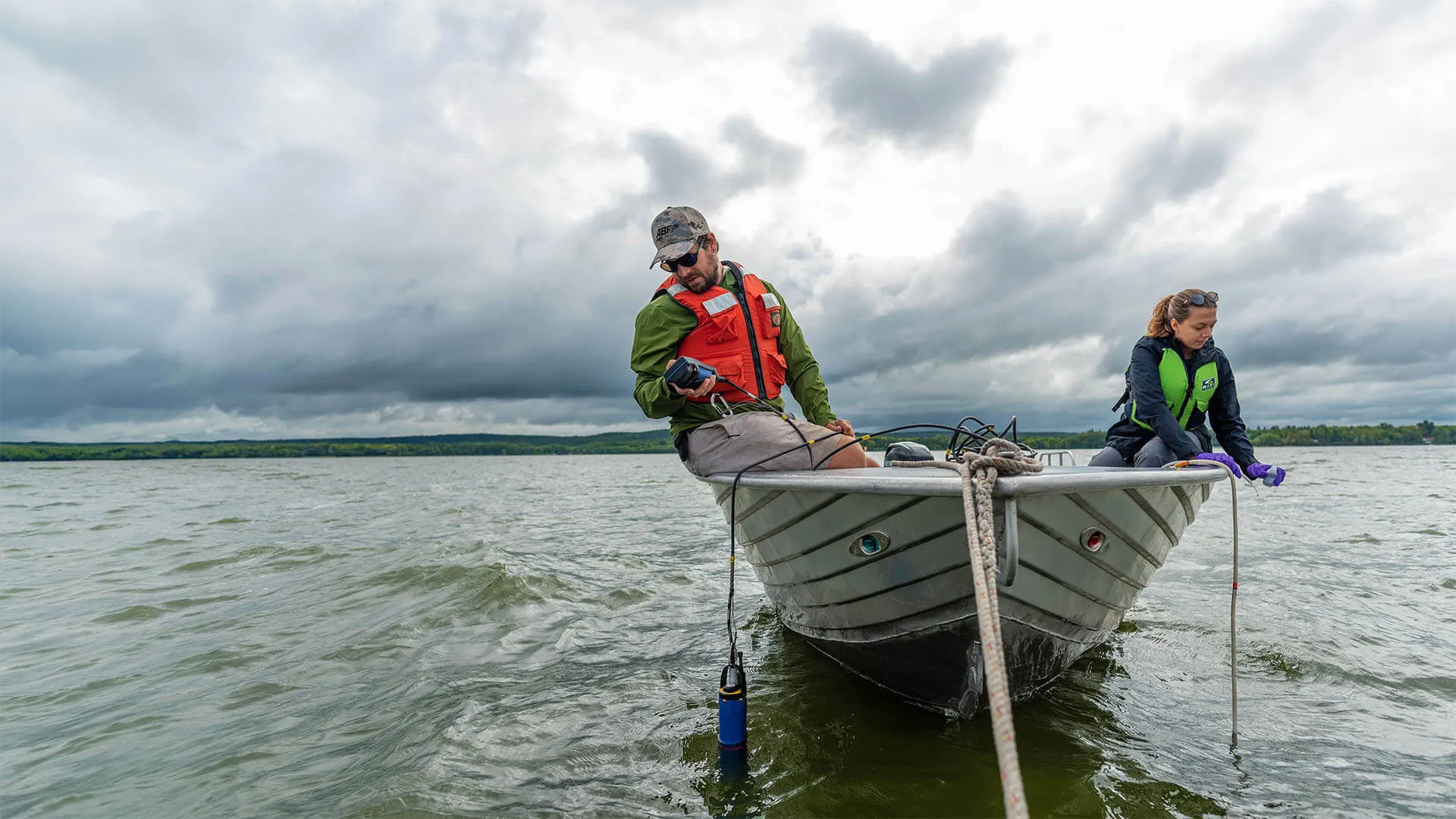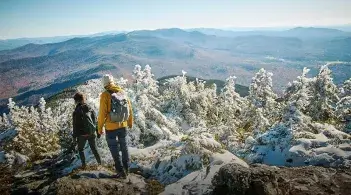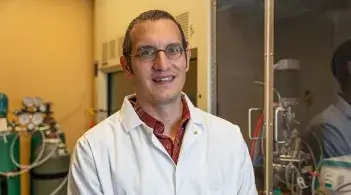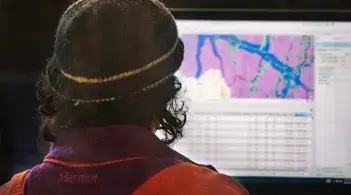Graduate study in Civil and Environmental Engineering at UVM prepares you to advance your career and lead innovation in environmental, geotechnical, water resources, structural, materials, transportation, and other vital engineering fields.
UVM’s exceptional team of world-class faculty and industry partners will equip you through invigorating classroom, laboratory, and field experiences. As a student here, you will directly contribute to enhancing the quality of life for people worldwide.
Elevate your career and contributions to a better future—join us!
Civil and Environmental Engineering Graduate Degrees
What Sets UVM Apart?
Program Details
Career Outlook
Civil and environmental engineering plays a crucial role in shaping society and the environment. Recent growth is attributed to increasing demand for infrastructure improvements, renewable energy sources, and water resource management. According to the U.S. Bureau of Labor Statistics, employment of environmental engineers and civil engineers is projected to grow 4 and 7 percent, respectively through 2039, with environmental engineers on the high end of the pay scale earning more than $153,000 and civil engineers more than $133,000.
We'll Help you Reach Your Goals
We're here to support you during the application process, help you customize your program, and offer resources that support your success throughout your graduate studies and beyond.
Have questions?
Send an email to Jane.Kimble@uvm.edu
CEE Student Experiences
Many of our students gain experience as well as funding through UVM's active research partnerships with industry and leading national agencies, such as:
- The National Science Foundation
- U.S. Department of Transportation
- U.S. Department of Agriculture
- U.S. Department of Defense
- U.S. Environmental Protection Agency
- Defense Threat Reduction Agency
- U.S. Department of Energy
- National Park Service
- Vermont Agency of Transportation
- Vermont Agency of Natural Resources
Frequently Asked Questions
How to Apply
Dates:
- Fall Entry: rolling; priority deadline for funding is January 15
- Spring Entry: rolling; priority deadline for funding October 1
Minimum Entry Requirements:
- GRE is not required
- 4-year bachelor's degree from an accredited institution; a B.S. in engineering is preferred but other areas of science are also considered
- Minimum coursework preparation: 3 semesters calculus; 1 semester differential equations; 1 semester physics; 1 semester chemistry.
- 3.0 GPA, or higher
- 3 letters of recommendation
- Personal Statement of Interest in our program
- If English is not your first or primary language, (TOEFL) scores of at least 90 (IELTS and Duolingo scores also considered)
Funding Options
This is an exceptional time to pursue a graduate degree at UVM, as research funding has increased fourfold during the past three years. Most Ph.D. students and thesis-based master’s students are funded as graduate research assistants (GRA) or graduate teaching assistants (GTA). These positions come with both a stipend and tuition support. We also have seven Ph.D. fellowships described below and multiple teaching and research assistantships at both Master’s and Ph.D. levels.
Gund/CEMS Barrett Ph.D. Fellowships (open to all prospective students, including international students)
Supported by a generous gift from Barrett Foundation, Gund/CEMS Barrett Fellowships are open to applicants pursuing doctoral degrees in engineering with environmental applications. These fellowships support Ph.D. students seeking to collaborate on urgent engineering and environmental issues. Students receive up to four years of funding, including an annual $35,000 stipend, tuition, and health insurance.
Learn more about Barrett Ph.D. Fellowships
GAANN Ph.D. Fellowships (open to US citizens and permanent residents only)
We have multiple US Department of Education Graduate Assistance in Areas of Nation Need (GAANN) doctoral fellowships. The project title is: Research and Education in Sustainable, Equitable, and Climate-Resilient Civil Infrastructure Systems. We are recruiting highly talented doctoral fellows to train them to be highly-skilled teacher-scholars capable of 1) designing next-generation sustainable and equitable civil infrastructure systems that are climate-resilient, and 2) educating future generations of engineers committed to sustainability, civic engagement, and equity.
Curriculum Overview
Master's Degree Overview
A minimum of 30 credit hours (CR) is required for master's degree completion, including no fewer than:
- 6 CR graduate-level statistics, advanced mathematics and/or numerical methods
- 9 CR CEE courses
- 3 CR outside of CEE 3
- Graduate seminar participation each semester (mandatory)
NOTE: Master's students may choose a thesis, project, or course-only program path. Requirements increase 3-9 CR for thesis and project path students.
Doctoral Degree Overview
A minimum of 75 credit hours is required for doctoral degree completion, including no fewer than:
- 35 CR of research (but no more than 45 CR); 30 CR courses (15 in CEE courses taken at UVM, transferred, or a combination; 15 CR graded at UVM; a maximum of 24 course credits transferred)
- 6 CR engineering coursework outside of CEE
- Graduate seminar participation each semester (mandatory)
- Semester-long significant teaching experience
- Comprehensive exam (by end of second year)
Collaborators
Our graduate programs feature a large and diverse list of research and work force collaborators. Here are just a few:
Where our Alumni Work
With the support of the CEMS Career Readiness Program CEMS graduate students have landed jobs with companies such as:
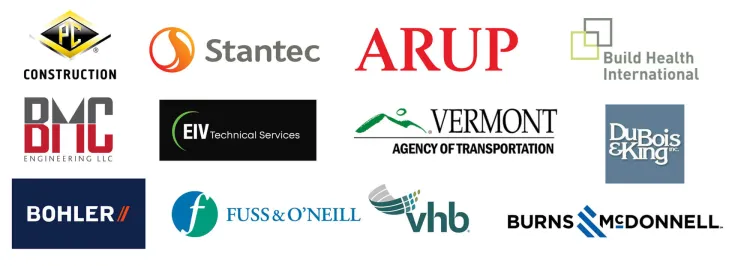
Innovative Solutions to Real World Challenges Featured News and Research
“Our students use our local communities and landscape, including extraordinary Lake Champlain, as laboratories.
–Mandar Dewoolkar, UVM Professor and Department Chair
“Here at UVM, faculty are willing to work with you on issues that are local, meaningful, and human-centric.
–Donna Rizzo, UVM Professor
